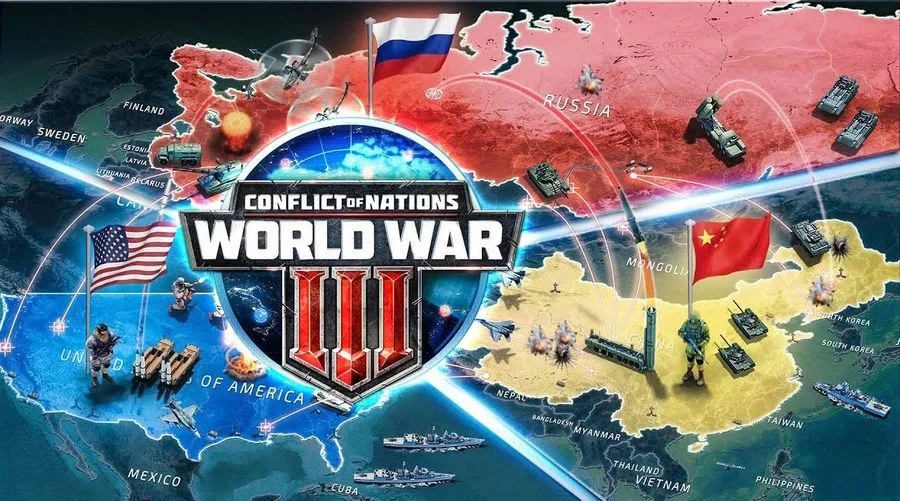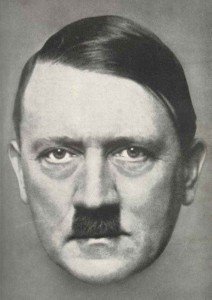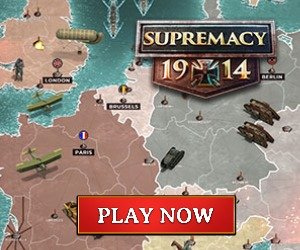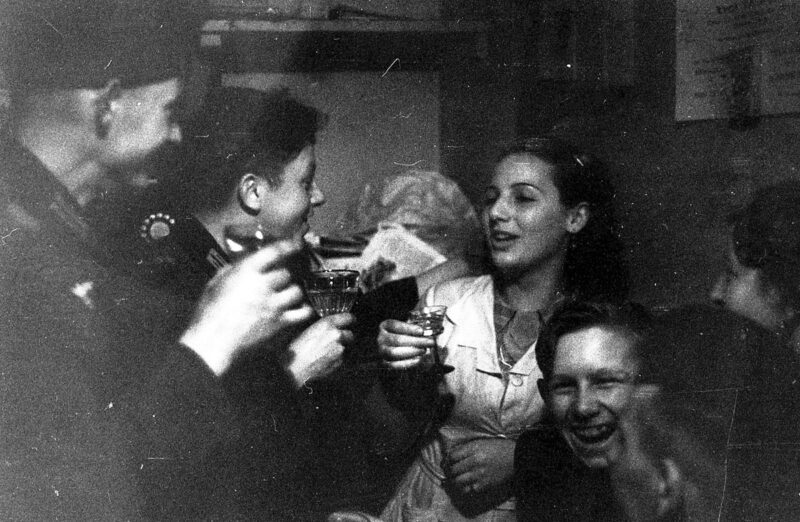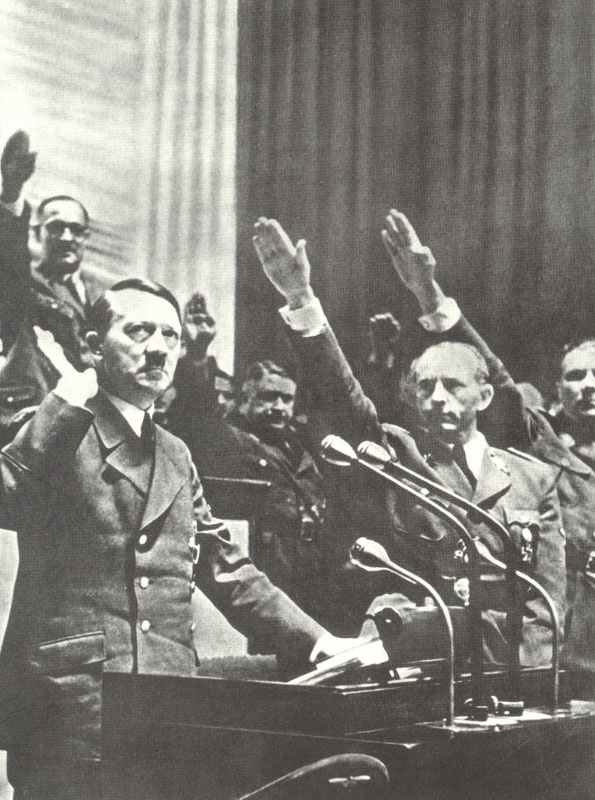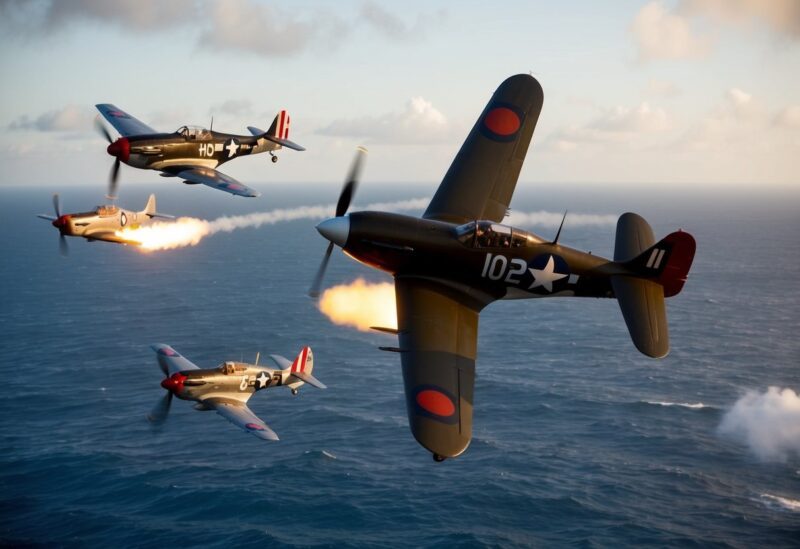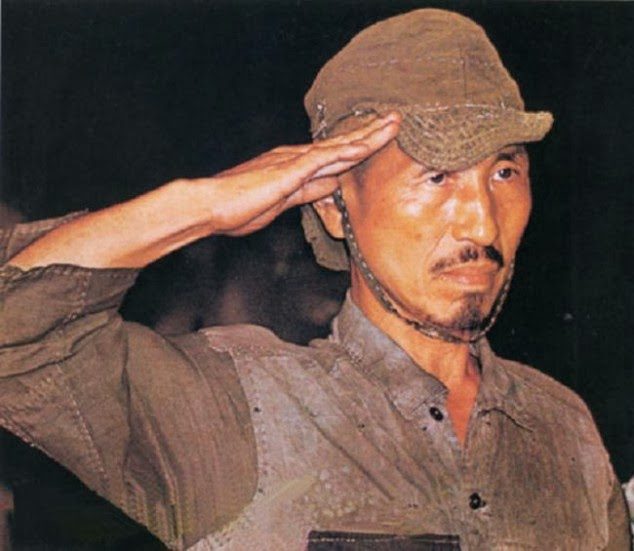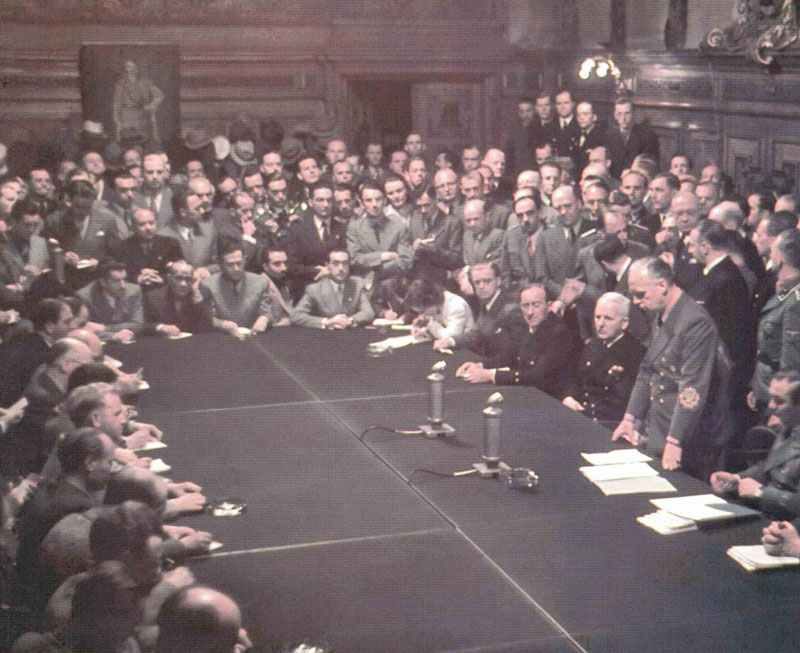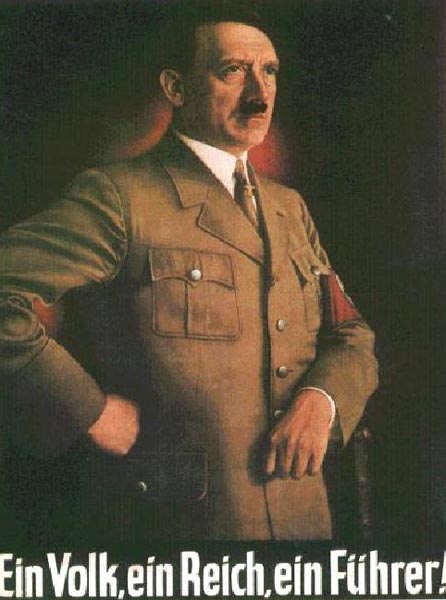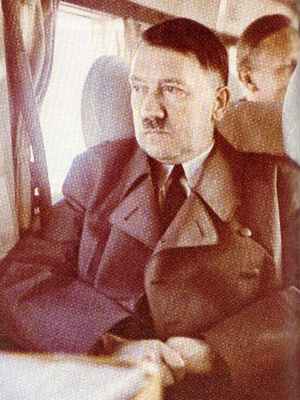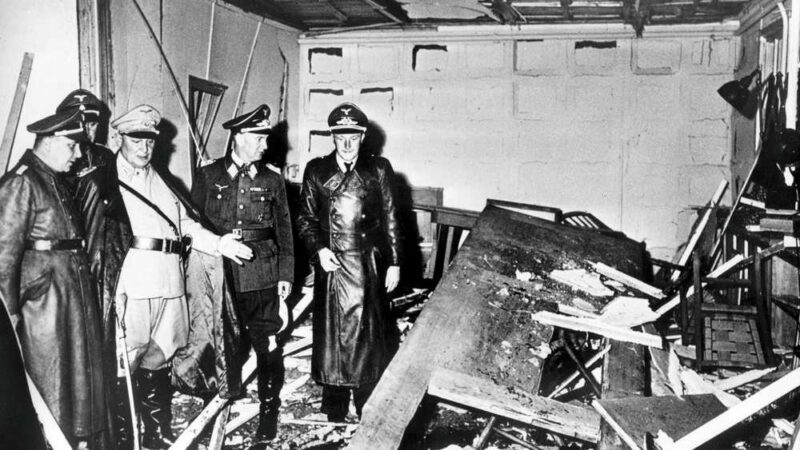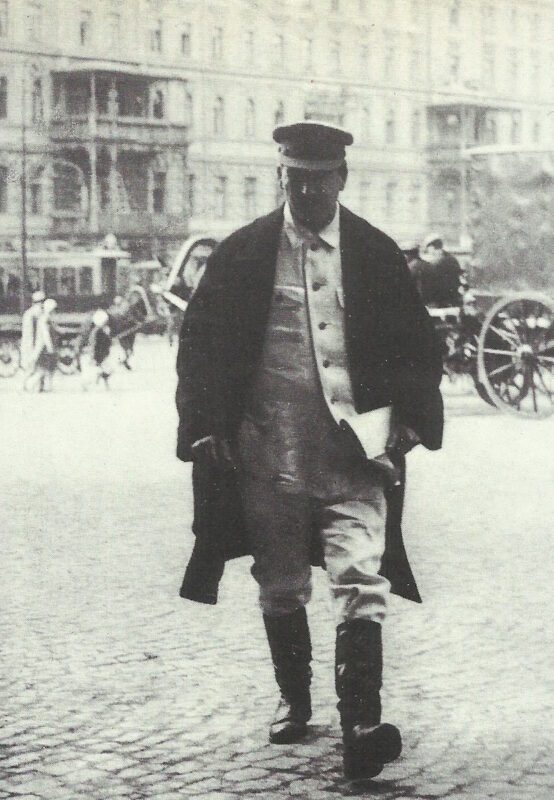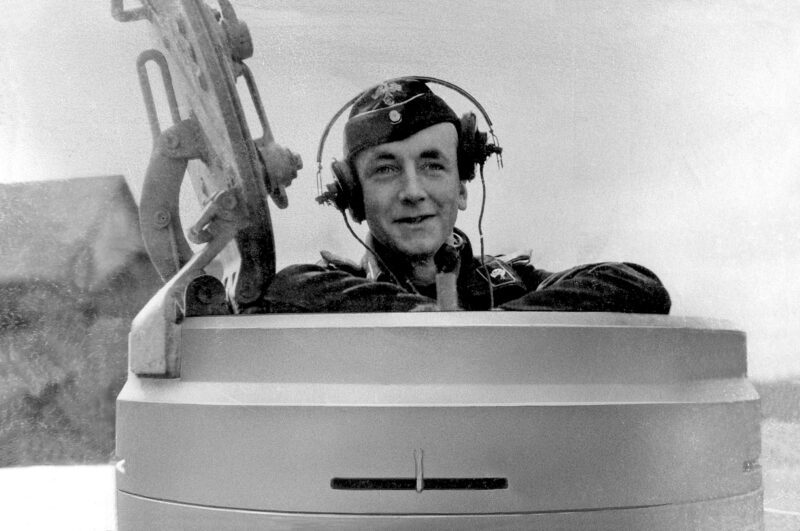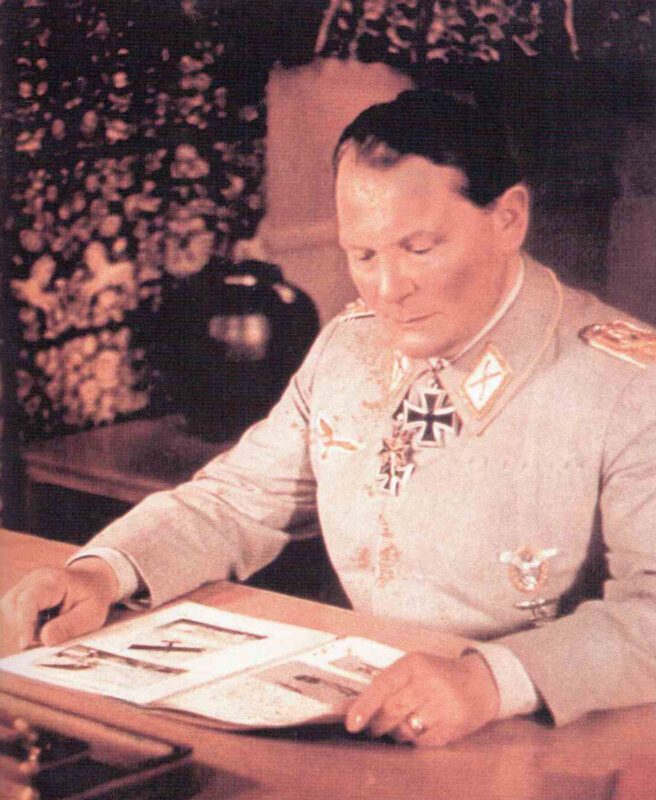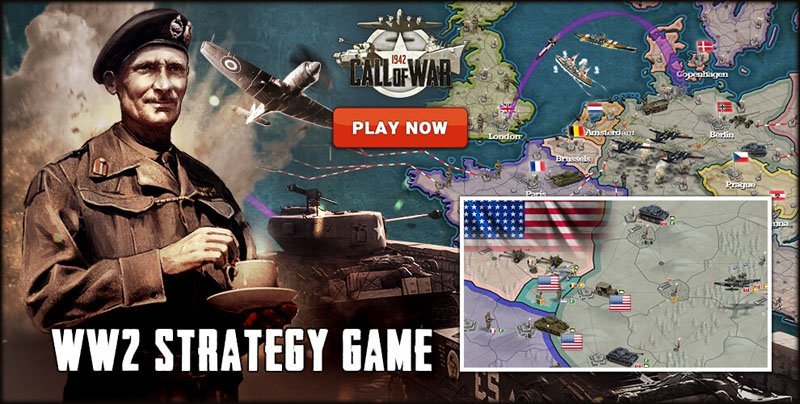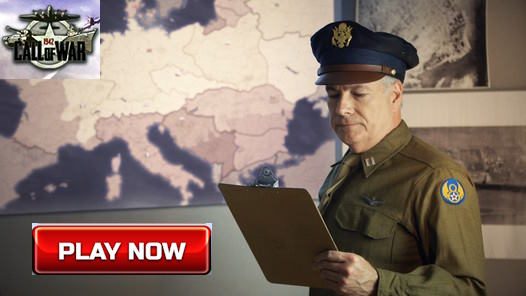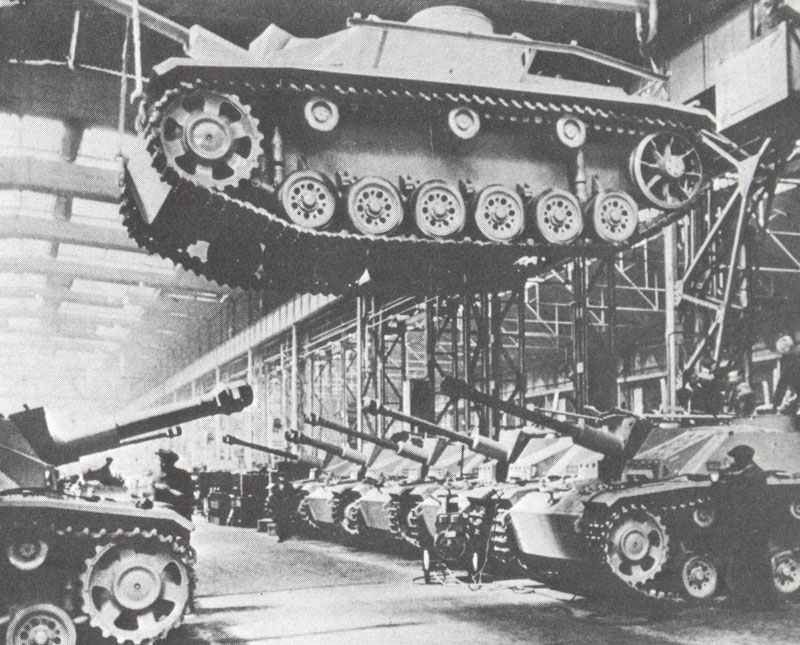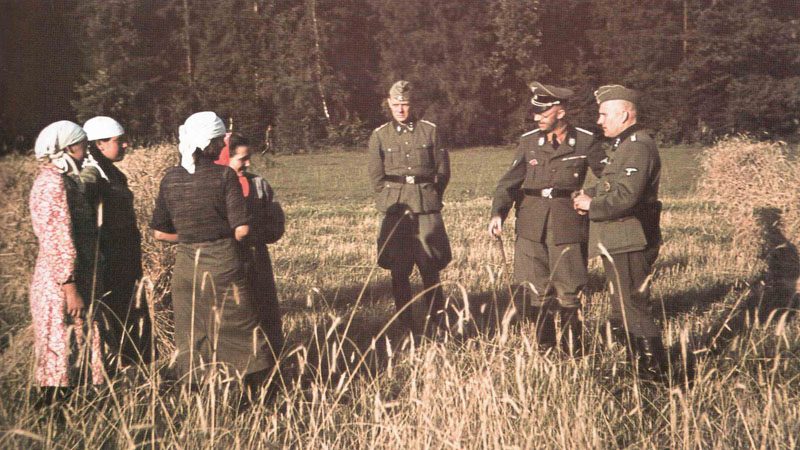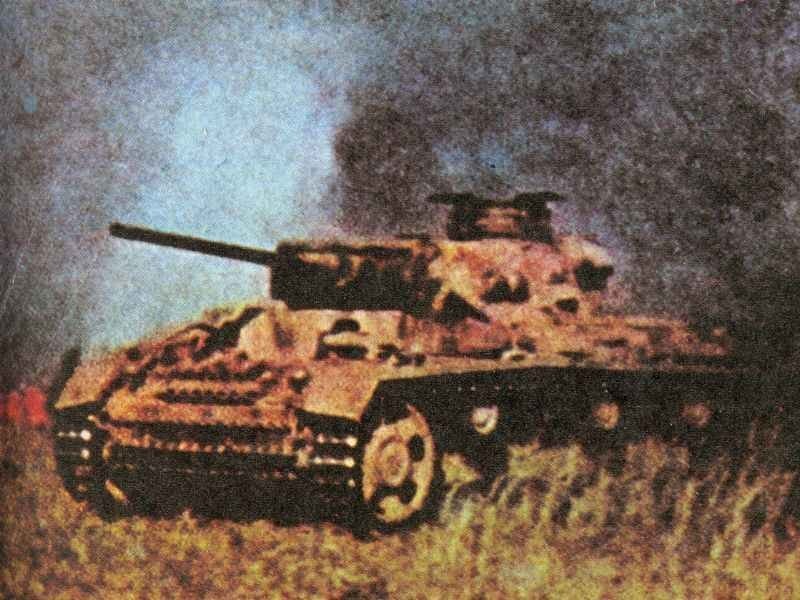A compressed Biography of the German Führer (Leader) of the Third Reich and Supreme Commander Armed Forces, Adolf Hitler (1889-1945).
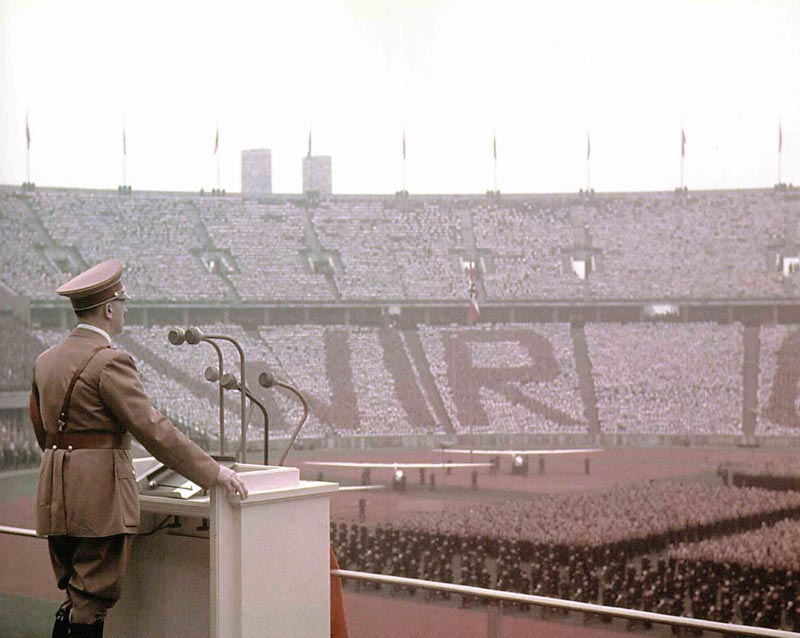
HITLER, Adolf (1889-1945)
German Führer (Leader) of Third Reich, Supreme Commander Armed Forces and the man who launched WW2 to his own surprise…
Megalomania with morbid fascination for death and destruction, and fanatical hatred of Jews and Communists. Adept liar and rabble-rousing orator; also capable of inspiring surprising degree of loyalty among subordinates.
After astonishing success of his bold Blitzkrieg against France and believing himself to be the world’s greatest military strategist, decided to invade Russia.
Took personal command of Army during critical Moscow battle, December 1941; insisted on right to veto all tactical decisions by Field Commanders. Combined with his inflexible ‘no retreat’ policy, this led to disaster at Stalingrad and Kursk, in Tunisia and in ‘Battle of the Bulge’.
Appalling, self-imposed, strain ruined Hitler’s health; became drug addict. Spent last weeks of power closeted in Berlin Führerbunker, raving at ‘traitorous’ generals and ‘Jewish Bolsheviks’, marshalling imaginary armies and ordering total ‘scorched earth’ policy.
More about Hitler:
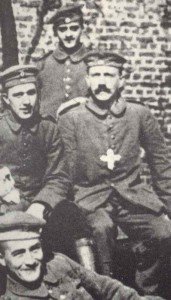
Born at Braunau am Inn, Austria, April 20, 1889, son of a minor customs officer. Spent early years as ‘starving’ artist in Vienna and Munich.
Served on Western Front, 1914-18, with rank of corporal; awarded Iron Cross (1st and 2nd Class); gassed and temporarily blinded October 1918.
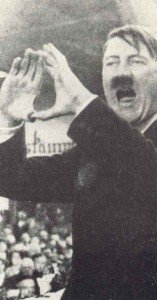
Then employed as secret agent by military authorities in Munich; ordered to infiltrate German Workers’ Party. Elected leader (1921) of renamed ‘National Socialist German Workers’ Party‘ (Nazi Party).
Led abortive Putsch (coup) in Munich, November 8, 1923. Imprisoned for 9 months; wrote ‘Mein Kampf’ (My Struggle).
Gained support of big industrialists from 1930 during Depression. Stood unsuccessfully against Hindenburg in presidential elections, 1932.
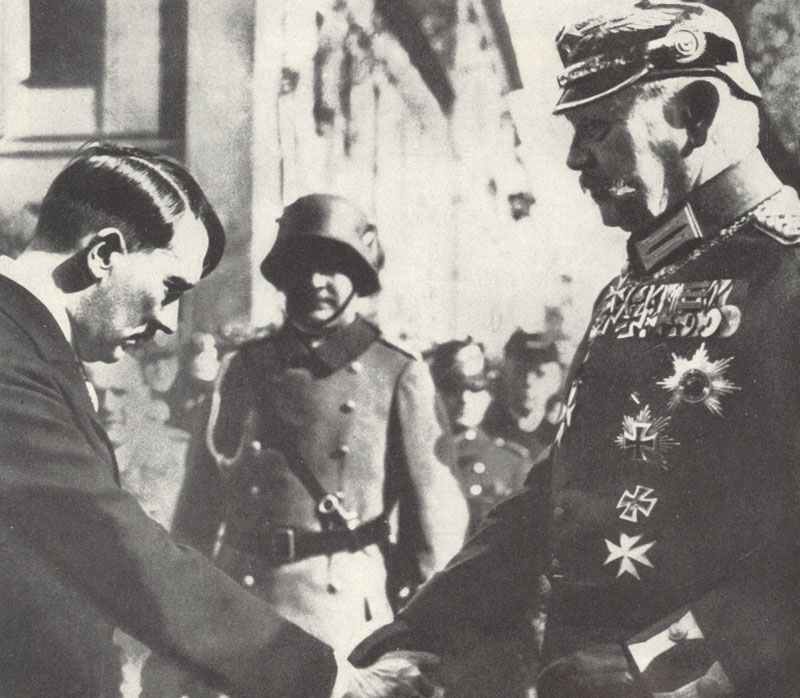
Appointed Chancellor, January 30, 1933. All opposition parties and rivals within the government and Nazi movement suppressed, 1933-34: ‘Night of the Long Knives‘, June 30, 1934. After death of Hindenburg, August 2, 1934, Hitler combined duties of Chancellor and President, under new title of Führer: powers confirmed by national plebiscite, August 19, 1934.
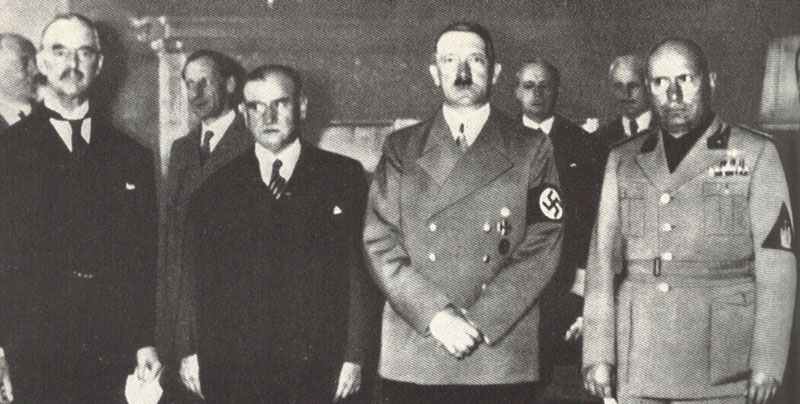
Ordered creation of air force (Luftwaffe) October 1, 1934; introduced conscription, March 1935. Legislated against Jews, September 1935. Sent German Army into demilitarized Rhineland, March 1936. Assisted Franco in Spanish Civil War, July 1936. Signed Rome-Berlin Axis agreement, October 1936. Annexed Austria, March 1938.
Met British, French leaders and Mussolini at Munich, September 1938; obtained Sudetenland. Annexed Czechoslovakia, March 1939. Made Non-aggression Pact with Stalin, August 1939.
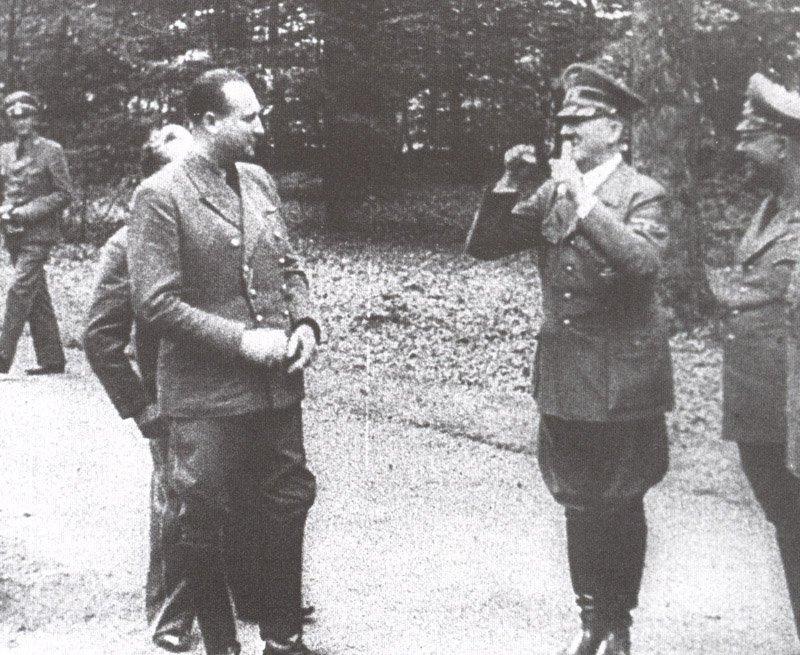
Invaded Poland, September 1, 1939. Conquered Denmark, Norway, Luxembourg, Netherlands, Belgium and France, April 9 – June 22, 1940. Visited Paris, June 1940.
Planned invasion of Britain and issued ‘Last Appeal to Reason’, July 1940. Ordered Luftwaffe to bomb London in revenge for RAF attacks on Berlin, September 1940. Postponed invasion of Britain. Ordered invasion of USSR, December 1940.
Intervened in North African campaign, February 1941. Crushed Yugoslavia and Greece in 17 days. Sent airborne army to Crete, May 1941. Ordered extermination of European Jews, May 1941.
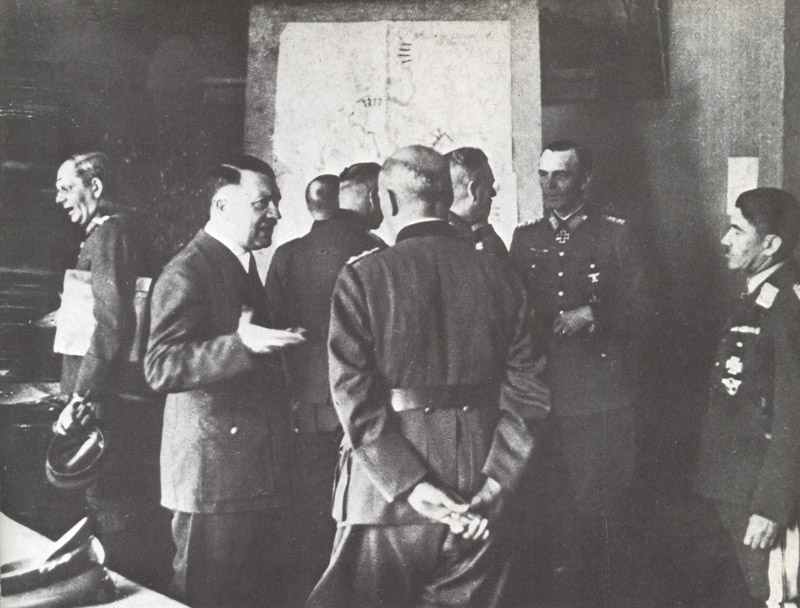
Launched delayed invasion of USSR, June 22, 1941. Belatedly attacked Moscow October – December 1941. Prevented rout of German armies in Moscow battle (December 1941) by forbidding retreat and dismissing many generals.
Attempted to capture Stalingrad and Caucasus oilfields, summer 1942.
Forbade encircled 6th Army to retreat from Stalingrad, November 1942-February 1943. Launched third, and last, summer offensive in Russia (Kursk salient), July 1943. Belatedly sent massive reinforcements to Rommel in North Africa, November 1942-April 1943. Rescued disgraced Mussolini, September 1943. Ordered destruction of London with robot missiles (V-1 and V-2), May 1944.
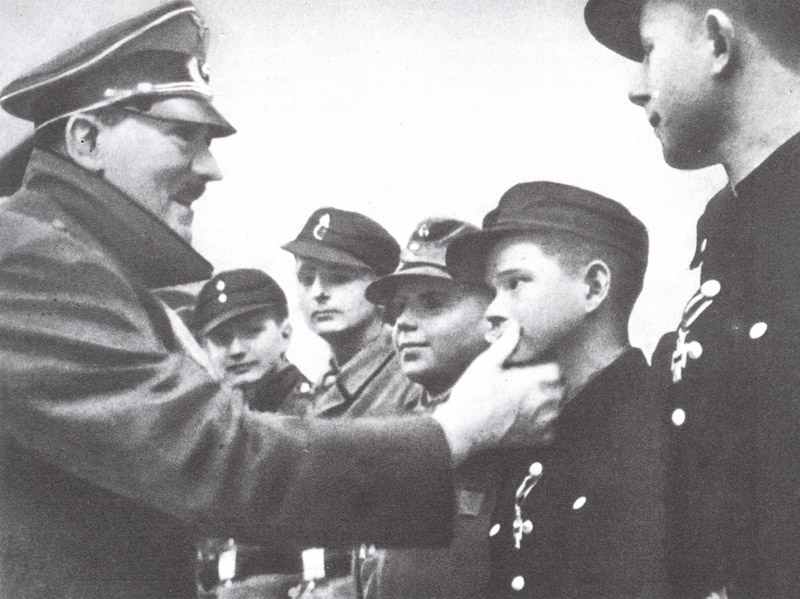
Survived assassination attempt, July 20, 1944. Launched final desperate offensive on Western Front, December 1944 (‘Battle of the Bulge’).
Ordered ‘scorched earth’ policy, April 1945. Decided to remain in Berlin to the end, April 22, 1945. Married mistress, Eva Braun, April 28, 1945. Both committed suicide, April 30, 1945.

see also: Pictures about Hitler
References and literature
Illustrierte Geschichte des Dritte Reiches (Kurt Zentner)
Chronology of World War II (Christopher Argyle)
Signal, Years of Triumph 1940-42 + 1943-44 – Hitler’s Wartime Picture Magazine (S.L.Mayer)
Fateful Choices (Ian Kershaw)
Hitlers Tischgespräche im Führerhauptquartier (Henry Picker)
Hitler’s Mein Kampf (D.C. Watt, Ralph Manheim – Hutchinson of London)


